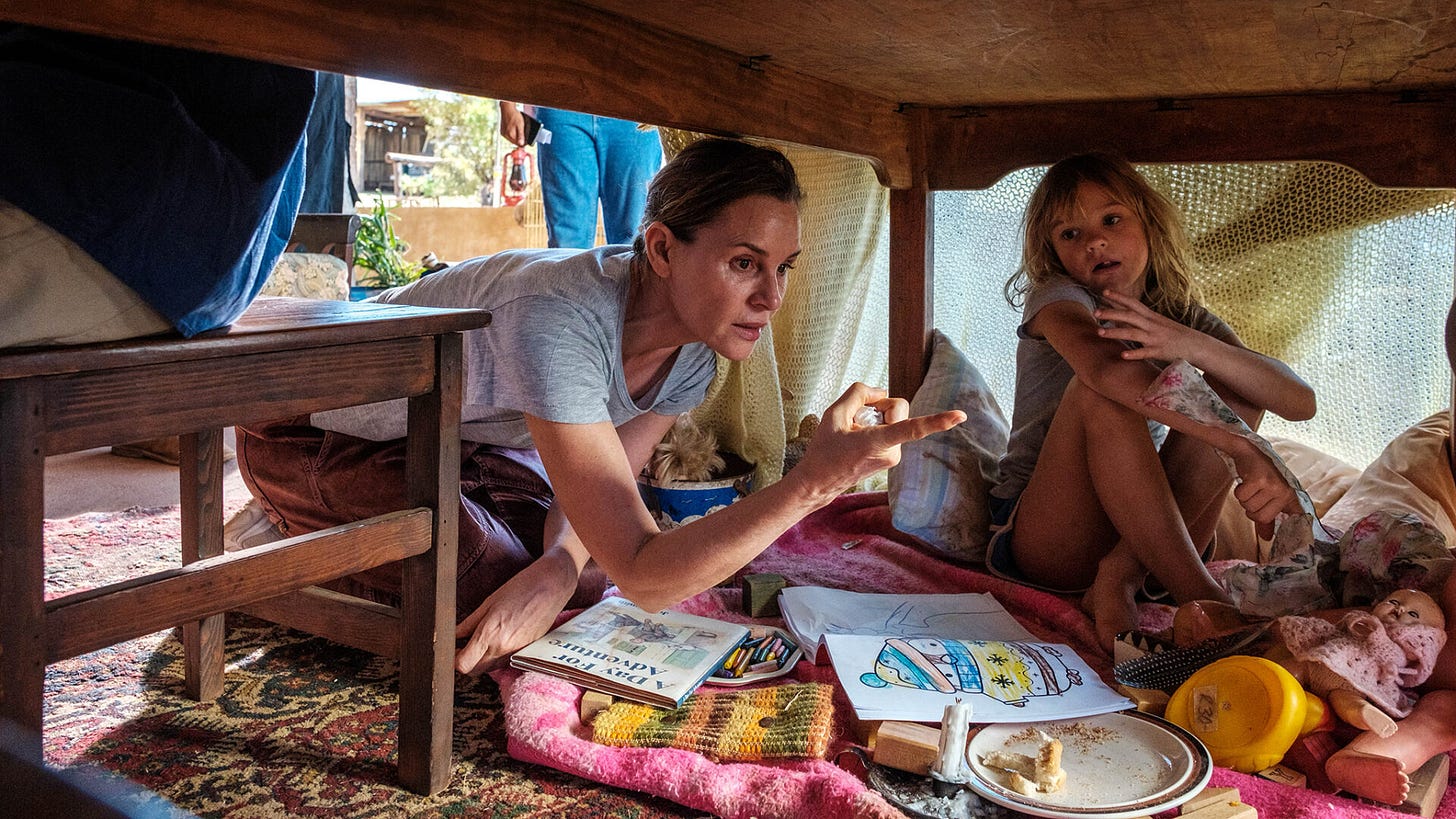In Theatres Now: “Don’t Let’s Go to the Dogs Tonight” Watches Apartheid from an Eight-Year-Old Girl’s Perspective
A child discovers the human costs of her colonial world
One critical decision for all narratives involves selecting a point of view, either adopting a single character’s perspective or choosing an omnipotent, more objective approach. Anchoring a story in one individual’s limited point-of-view can encourage invested, complex involvement in events as that privileged character communicates first-person incidents. This holds true for director/star Embeth Davidtz’s “Don’t Let’s Go to the Dogs Tonight.” Told through eight-year-old girl Bobo’s eyes, the alternating between Black Rhodesians’ versus white farmers’ lives, prejudices, and struggles reveals and intensifies pervasive racist attitudes through an appealing, naïve, questioning character as she discovers the human costs of her colonial world.
Throughout Bobo’s childhood joys— unsupervised play, riding her motorbike, smoking, hanging out with her nanny—brutal apartheid dominates. Set in 1980, the British colony Rhodesia struggles and battles to transform into what will become an autonomous Zimbabwe. Loving the land they occupy, white settlers resist surrendering their authority and control, among them Bobo’s parents and older sister who fight to hold on to their farm despite the clearly inhumane social inequality that governs all interaction. Rhodesians struggle toward eventually electing rebel leader Robert Mugabe as their first prime minister. Meantime, skirmishes erupt in the area, with Bobo’s father Tim joining the local militia heading to the border area to fight revolutionaries.
Given her mother Nicola’s alcoholism and mental problems, Bobo finds refuge with her Rhodesian nanny/housekeeper Sarah. Sarah’s love for Bobo prompts accusations of too much emotional investment there, with a warning by co-worker Jacob of dangerous collaboration with the colonists. Prompted by the close bond between her and Sarah, Bobo asks Nicola if they themselves are African. Told, “Oh, no,” Bobo wonders if it’s because they don’t have Black skin. Here and elsewhere, Nicola repeatedly reinforces negative attitudes, asserting any African might be a terrorist. Because of her belief in that and her fear of snakes, Nicola keeps a shotgun handy. In exchange with her mother and others, Bobo’s probing questions and thoughtful reactions reveal Bobo’s grasp of the depths of inequality. Her inquiries are delivered calmly, reflectively by an eight-year-old on the cusp of condemnation of the racism she observes but doesn’t comprehend.
Professionally established as a well-known film and series actress, first-time director Embeth Davidtz impressively adapts Alexandra Fuller’s memoir titled “Don’t Let’s Go to the Dogs Tonight: An African Childhood,” using Fuller’s work as the catalyst for the film and the title. At last year’s Telluride Film Festival in the discussion following the film’s screening, Davidtz explained that in adapting Fuller’s book, approximately fifty percent came from her own history in South Africa. Born in Indiana to South African parents, her family moved to South Africa during the 1970s state of emergency when she was eight. This overlap in age and exposure to apartheid as a young girl prompted Davidtz to commingle experiences with her own family’s alcoholism and mental illness with Fuller’s similar problems. Instead of attempting to dramatize the twenty years covered in Fuller’s book, Davidtz chose to focus exclusively on young Bobo.
There was one more significant change to come, for originally Davidtz explained she did not intend to direct the film. At Telluride’s post-screening discussion, she said she couldn’t find a director with whom this story connected as it did with her. Therefore, Davidtz decided she had to direct herself in the role of the unlikable, distressed mother. She added that Fuller’s writing gave her great insight into Rhodesian farm life and challenges. The blending between her and Fuller’s background works exceptionally well, capturing what Davidtz called “the disconnect between what Bobo’s seeing and what’s right and wrong.” To embody and accurately present this conflict, in Davidtz’s description, Bobo had to embody the “authentic, feral little South African, much like I was.” She found the perfect choice in Lexi Venter after rejecting dozens of child actors who always “acted.” She found Lexi on a Facebook post, “an untrained, spunky little girl,” as Davidtz described her. The title comes from Fuller’s comment in her memoir on her volatile mother. Fuller writes that “I am like one of the dogs, trying to read her mood.” The title also refers to writer AP Herbert’s line, “Don’t let’s go to the dogs tonight, for mother will be there.” Though set in 1980 Rhodesia/Zimbabwe, many attitudes and issues still tragically haunt Africa and resonate throughout the world. “Don’t Let’s Go to the Dogs Tonight” is screening now.





You capture the diffwerent aspects of the film and its background so well with an expert use of Davidz's quotes.